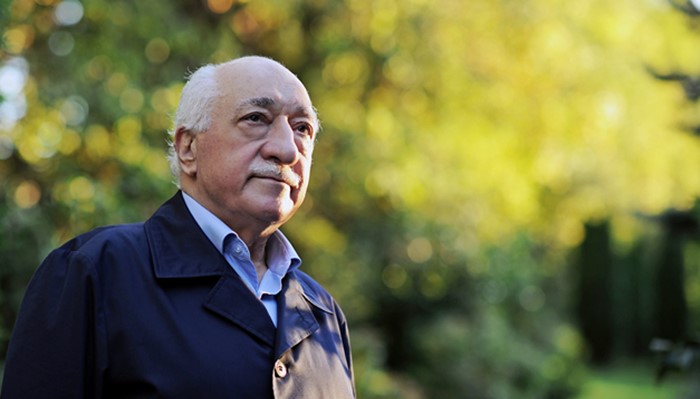By Fethullah Gülen
SAYLORSBURG, Pa. — The brutal, deadly attacks in London and Manchester on innocent civilians are the latest in a series of senseless violent acts carried out by the so-called Islamic State, a group that deserves no designation other than the world’s most inhuman criminal network.
In response to this threat, the world’s Muslims can and should help intelligence and security communities ward off future attacks and eliminate the lifelines of this menace.
From its founding amid the ashes of Al Qaeda in Iraq, ISIS has dealt in deception as well as death. Despite its name, ISIS represents a perversion of Islam. The group’s dress, flags and slogans cannot hide their abhorrent betrayal of the spirit of this major world faith.
Denying this barbaric group a geographical base that emboldens them to claim statehood — an essential element of their propaganda to potential recruits — is a worthwhile goal that all Muslims should support. But the challenge isn’t only military.
ISIS, and other groups like it, recruit alienated Muslim youth by offering them a false sense of purpose and belonging in the service of a totalitarian ideology.
Countering that appeal will include religious, political, psycho-social and economic efforts. It will require that local communities and government institutions address structural issues such as discrimination and exclusion.
International organizations must protect citizens against violent persecution of the kind we witnessed in Syria and assist with transitions to democratic governance. Western governments, too, have a responsibility to adopt a more ethical and consistent foreign policy.
Muslim citizens and organizations can and should be part of these broader efforts, but we also have a unique role and responsibility in this fight.
Across the world, Muslims need to strengthen the immune system of our communities, especially our youth, against violent extremism. We must ask: How did our communities become grounds for terrorist recruitment? Yes, external factors must be addressed, but we must also look within.
Self-examination is an Islamic ethic. There are actions we can take, as Muslim parents, teachers, community leaders and imams, to help our youth protect themselves. We must defeat these murderous extremists in the battlefield of ideas.
A common fallacy of violent extremist ideologues is to decontextualize the teachings of the Qur’an and the Prophet (peace be upon him) and misinterpret them to serve their pre-determined goals. These ideologues turn snapshots from his or his companions’ lives into instruments to justify a criminal act.
The antidote is a religious education program that teaches the tradition in a holistic and contextualized way. To be able to resist the deceits of radical ideologues, young Muslims must understand the spirit of their scripture and the overarching principles of their Prophet’s life. We need to teach our youth the full story of how the Prophet moved his society from savagery into ethical norms shared by Abrahamic faiths.
A holistic religious education should start with the commitment to the dignity of every person as a unique creation of God, regardless of faith. When God says “We have honored the children of Adam” (Quran, 17:70), all humanity is honored. The Qur’an describes taking the life of even one innocent person as a crime against all humanity (Quran, 5:32). Even in a legitimate defensive war, the Prophet’s teachings specifically prohibit violence against any noncombatants, especially women, children and clergy. The belief that one can enter paradise by killing others is a delusion.
Violent extremists also commit another major fallacy: transplanting into the 21st century religious verdicts from the Middle Ages, in which political rivalries were often confused with religious differences. Today, Muslims have the freedom to practice their religion in democratic, secular countries.
The values of participatory governments align with core Muslim ideals of social justice, the rule of law, collective decision-making and equality. Muslims can and do live as contributing citizens of democracies around the world.
Proactively, we must develop positive ways to satisfy the social needs of our youth. Youth groups should be encouraged to volunteer in humanitarian relief projects to help victims of disasters and violent conflicts. In teaching them to help others, we will give them the tools to empower themselves and feel that they part of something meaningful. We also have a duty to help them engage in dialogue with members of other faiths to nurture mutual understanding and respect. As Muslims, we are not just members of a faith community, but of the human family.
Since the 1970s, the participants in the social movement Hizmet — the Turkish word for service — have founded more than 1,000 modern secular schools, free tutoring centers, colleges, hospitals and humanitarian relief organizations in more than 150 countries. By facilitating the involvement of young students and professionals as service providers, mentors, tutors and helpers, these institutions and their social networks foster a sense of identity, belonging, meaning and empowerment that constitute an antidote to the false promises of violent extremists.
Indeed, the best way to proactively protect our youth is to provide them with a positive counter-narrative. By offering opportunities for language learning and cultural exchanges, these kinds of institutions nurture a pluralistic outlook, critical thinking and empathy.
As part of their daily rituals, practicing Muslims pray for God to keep them “on the straight path.” Today, the straight path means examining our understanding of the core values of our faith, how we embody those values in our daily lives and strengthening our youth’s resistance to influences that contradict those values.
Being part of the worldwide effort to help stop violent religious radicals from repeating the London and Manchester cruelties elsewhere is both a human and religious responsibility.
*Fethullah Gülen is an Islamic scholar, preacher and social advocate.
This article originally appeared in Politico Europe on June 8, 2017.



